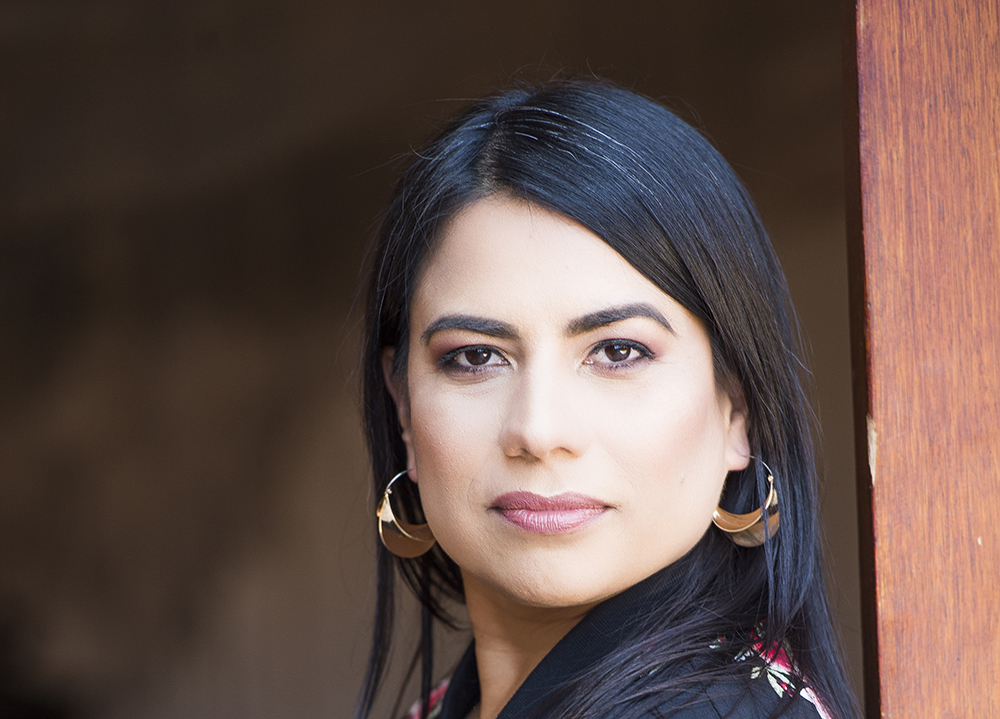Professor Glenda Gray is President and CEO of the South African Medical Research Council
This M&G webinar was sponsored by the University of Johannesburg (UJ) www.uj.ac.za. Speakers included Professor Glenda Gray, President and CEO of the South African Medical Research Council, Research Professor at the School of Clinical Medicine, Wits and Chair of the Research Committee for Covid-19; Professor Haroon Saloojee, Clinical Unit Head at the Chris Hani Baragwanath Academic Hospital in Soweto, Head of the Division of Community Paediatrics, Department of Paediatrics and Child Health, Wits School of Clinical Medicine and Executive Member of the South African Paediatric Association; and Professor Jace Pillay, South African Research Chair for Education and Care in Childhood in the Faculty of Education and Professor in the Department of Educational Psychology at UJ. It was moderated by Marcelle Gordon, Anchor on TV news channel eNCA.
Much has been said about the “silver lining” of Covid-19: its comparatively low impact on children.
 Professor Haroon Saloojee is Clinical Unit Head at the Chris Hani Baragwanath Academic Hospital in Soweto
Professor Haroon Saloojee is Clinical Unit Head at the Chris Hani Baragwanath Academic Hospital in SowetoEven though one-third of South Africa’s population is under the age of 18, only 7% of recorded cases of Covid-19 have manifested in children. “The direct effect on health has been smaller than we anticipated,” said Professor Haroon Saloojee. “And that’s obviously welcome.”
But less has been said about the silent toll the pandemic has taken on the youth. “The disruption has been in children’s lifestyles,” said Saloojee. “Globally and in South Africa, things such as children’s ability to learn, children’s ability to develop normally, access to food, and the daily things: eating, sleeping, screen-time — have all been affected.
“Unfortunately, we’ve also seen an increase in violence and abuse of children. Many of the effects of Covid-19 are negative, particularly on children’s mental health.”
Professor Jace Pillay said that several symptoms were manifesting on a collective scale among South Africa’s 12 million children. “What we’re getting right now is that we see that there’s a lot of fear, anxiety, depression, stress, post-traumatic stress disorders and also struggles with grief when children are losing their significant care-givers and parents,” he said. “These are some of the things that we should be looking at right now.”
He argued that adults sometimes use the notion that “children are resilient” as a cop-out. “Sometimes I think we use that phrase … and then we actually overlook what actually needs to happen,” said Pillay. “Children are resilient, yes, but we need to give them the resources they need to activate those kinds of levels of resilience.”
He listed a number of red flags for parents to be aware of:
- Sleeping problems: if children can’t sleep, struggle to fall asleep or are sleeping too much
- Issues with appetite: eating too little or too much
- Nightmares
- A loss of interest in school
- A loss of interest in peers
- Regressive behaviours
- Physical symptoms such as headaches and stomach pains.
 Professor Jace Pillay is the South African Research Chair for Education and Care in Childhood in the Faculty of Education
Professor Jace Pillay is the South African Research Chair for Education and Care in Childhood in the Faculty of Education If your child is experiencing one or many of these symptoms, take it as “a serious indication” that they may need help.
All levels of government, communities, families and individuals need to “start with a plan of action to begin to address these issues — because if we do not do something about it now, it’s definitely going to have long-term lasting effects”, according to Pillay.
One of the things that should be done to help mitigate these negative emotional effects, said Professor Glenda Gray, is to ensure that children get back to school. This opinion was shared by all three panellists. “Children do belong in school,” said Gray. “Why? Because they have largely been [physically] unaffected by the virus.”
One of the reasons for this is because children have significantly less “S2 receptors” in their noses — the receptors that the virus attaches to in order to infiltrate our bodies, she explained. Another is that children may be benefitting from cross-protection: previous exposure to coronavirus infections, which bolstered their immune systems.
 Marcelle Gordon, Anchor on TV news channel eNCA
Marcelle Gordon, Anchor on TV news channel eNCAWhile it is important to be aware of any co-morbidities that may exist among children and thus increase their risk of being severely affected by the virus, Gray said: “I want to reassure parents and teachers that by and large, children are going to be safe.” Saloojee added that schools had, for the most part, not seen massive outbreaks of the virus after opening, which is something that was originally feared might take place.
Another beneficial activity to is to allow children to participate in sports, said Gray. “Sport is critical, and it helps in our mental development,” she said. “Running, skipping, soccer … are very critical for children, and we need to make sure our schools are doing this.”
When overseeing sports and play, keep in mind the basic provisos, she advised. Minimise contact with others, especially contact for longer than 15 minutes at a time; wash hands and equipment regularly; avoid choirs, which act as spreading grounds for Covid-19; play in open, well-ventilated spaces.
Pillay offered a multi-faceted approach for tackling the virus. “We need to use Covid-19 to tackle Covid-19,” he said, using this acronym:
C – Connection: talk to children about their feelings and thoughts, and validate that these are appropriate responses to the pandemic.
O – Open and honest: be candid and transparent with children when dealing with the realities surrounding the virus.
V – Validate information: stop rumours and fake news. Try not to overload children with information, which can increase anxiety.
I – Isolate: teach children the importance of social distancing and good hygiene.
D – discover new ways of doing things, such as online education and fulfilling social needs through social media.
If caregivers can practice these things 19 times a day, and validate what children are experiencing, much progress will be made in successfully addressing the effects of the virus, said Pillay.
Saloojee added that the pandemic had highlighted a need for caregivers to train children holistically to increase their resilience: “If we begin to train our children to deal with different crisis situations, and we give them the necessary set of skills to be able to do that, we are preparing them more for life than just for single events.” — Thalia Holmes
To replay the webinar, visit: https://event.webinarjam.com/t/click/qy564s04i5qbprur7vxfz7gty77c7